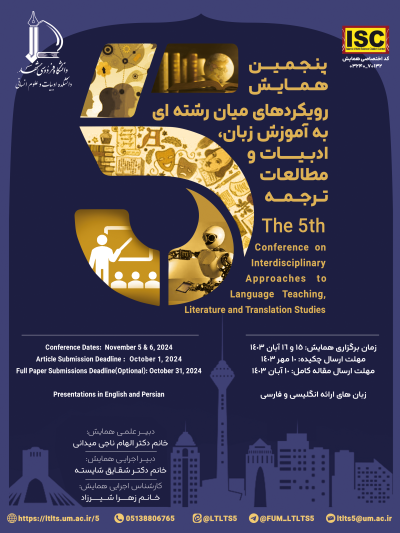0% Complete

نویسندگان :
کلمات کلیدی :
چکیده :
لیست مقالات بایگانی شده
Shahrzad Mohammad Hosein - Hoda Shabrang
Parvin Javedsokhan - Samad Mirzasuzani
Azra Ghandeharion - Zainab Abbas Mohammed Alshetiwi
Erfan Bandad - Farah Ghaderi
سیامک شهابی
اکرم افخمی - رامین محرمی
Niloufar Maghroun - Hanie Nejati

